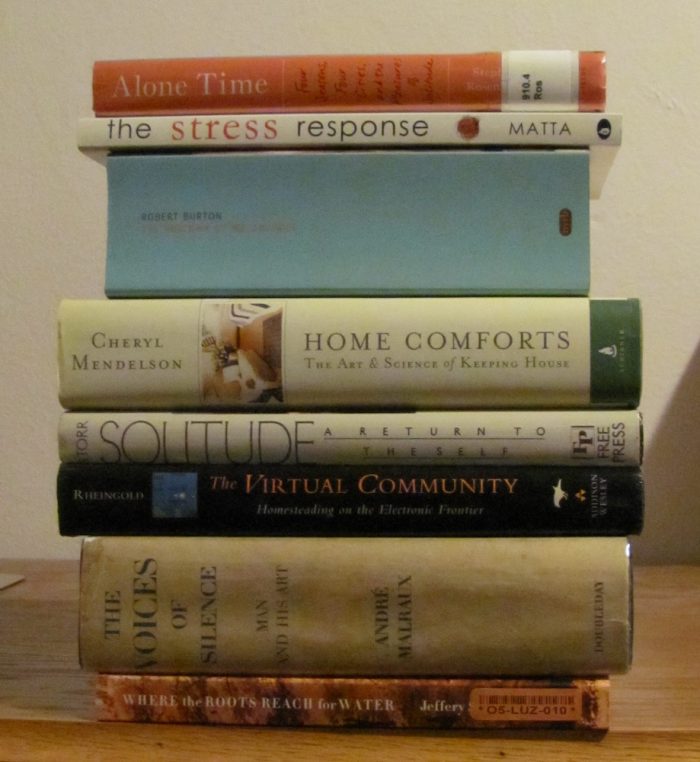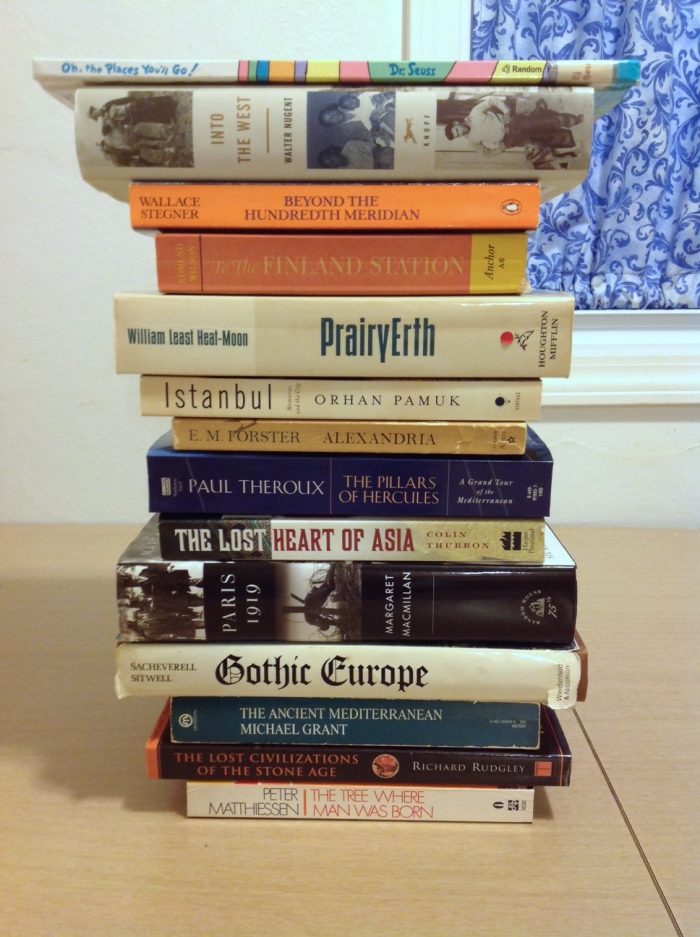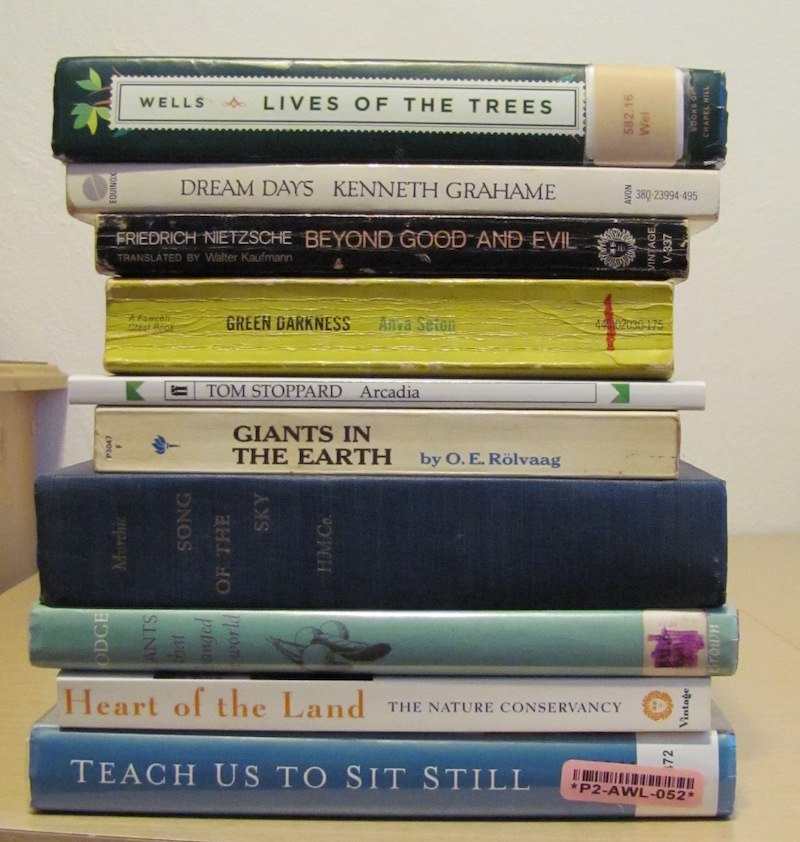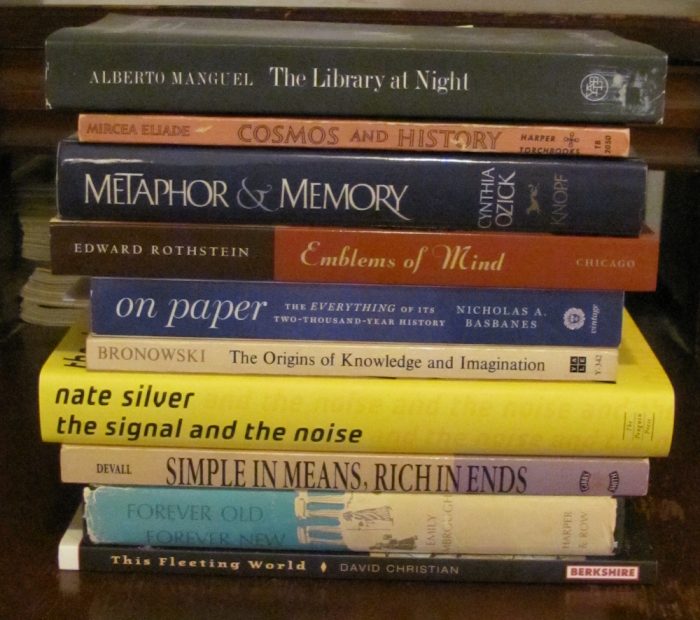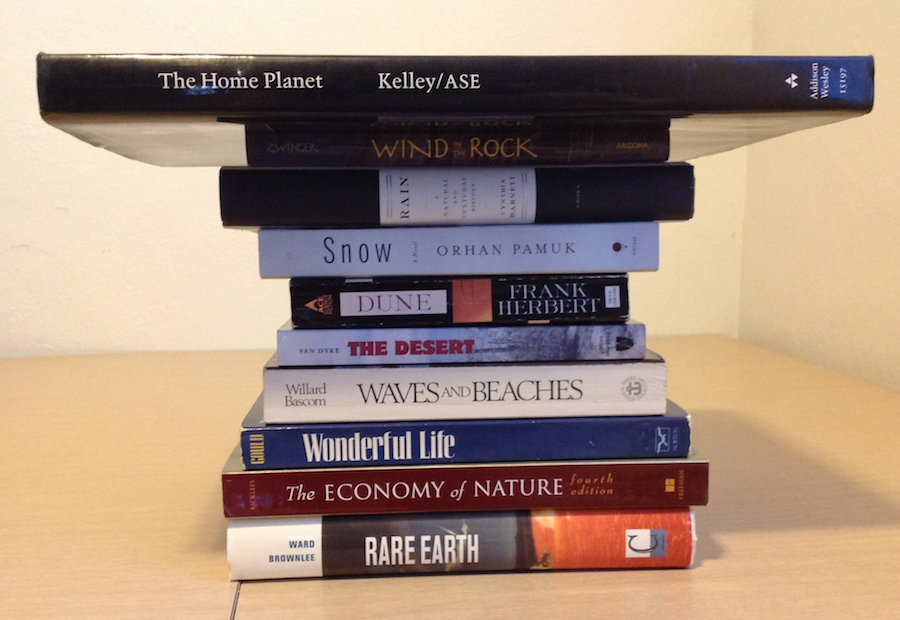Note: I wrote this in September 2004. I’ve been to every Lotus Festival since then; even this year, I’m watching the festival online. I thought I’d share this piece now because it recalls happier years, and because I hope someday I’ll again be among crowds of exuberant people downtown, enjoying the music.
“Only music keeps us here,
Each by all the others held.”—Wendell Berry, Closing the Circle
Whenever the subject of the Lotus World Music & Arts Festival comes up, I assure those who have never been, “Oh, you’ll love Lotus.” Lotus is held every September in Bloomington, Indiana; the events of the festival cover a four- or five-day period, but to me what Lotus means is the Friday and Saturday night showcases, where you can wander from venue to venue listening to old-time fiddle music here, Tuvan throat-singing there, salsa or zydeco at a tent outside where people dance, flamenco and Gypsy music and an Iraqi playing an oud inside a church. With an evangelical zeal that I typically reserve for spreading the word about astronomy, I recently introduced a friend to the magic of the festival.
This was my sixth Lotus, and I would no more skip the two evenings of music than I would ignore my sons’ birthdays. My Lotus tickets are a predictable September expense. My friend Mark, on the other hand, thought he would venture only one night, and so he had to decide which night to go. One of the enjoyable things about Lotus is sitting down with the schedules and the descriptions of the performers and figuring out how to fit in as much as you can of what you want to hear. Because there are so many bands, you never get to hear all that you want to. Some bands you identify as must-hear, but when the time comes for them to play you’re entranced by something else and you never make it. On the other hand, sometimes you’ll be passing one of the tents and get snared by something that hadn’t even made it onto your long list. It’s a lot like life that way. You make your plan, and then things happen, only partly according to the plan. Unlike life, it’s usually all good.
So the evening before the showcases started, we sat down with the schedules and plotted some possible trajectories through the nights of music. Mark looked at the performers and found some he thought he would like to hear, and as I expected, some of them performed only on one night and some only on the other. If you hear the blues on Saturday night, you’ll miss these guys on Friday night who played with the Grisman Quartet. If you want to hear what that Australian pop group sounds like, you’ll miss the woman from Samiland and the Polish folk group. After wallowing in pleasant confusion, we concluded that whatever night he went, he would find something to enjoy, and we left it at that.
When it came time to go, he decided on Friday’s showcase. “An excellent choice,” I said, although I would have said the same thing if he’d chosen Saturday; I’ve never had a bad or even a mediocre night at Lotus. We thought we’d start out with the Sami woman, but the line outside the Buskirk-Chumley stretched clear to the corner and we headed to the Convention Center instead to listen to Darol Anger and Mike Marshall. They were not a pair I would have picked out for myself, which shows why it’s good to go with a friend: you might hear some things you’d otherwise have missed. It was toe-tapping folksy music, and luckily the guys from Väsen (a Swedish group I wanted to hear) joined Anger and Marshall for a couple of numbers. (“What is that instrument that guy is playing?” Mark wanted to know, and I couldn’t tell him at the time, but I think it was a nyckelharpa.) The word “grooving” is not as widely used as it used to be, but that’s what these guys were doing, and it was fun to watch as well as to listen to.
After a while we headed back to the Buskirk-Chumley, where we easily got in to hear some Sami music, melded with electronic sounds and some unexpected saxophone. The music blew us away. Mari Boine’s voice is memorable, haunting and floating and stinging by turns. She sang mostly in her native language, but the feelings behind the words were perfectly clear. For someone as word-oriented as I am, it was almost a relief to let the music go straight to my heart without any intervention from my verbose brain. Mark said that the songs evoked images of the frozen world they came from, with reindeer being herded by snow-white dogs (he is a Samoyed fan). For me there were neither words nor images, just washes of emotion. During a break in the singing, one of the band members played a poignant song on something like a flute or a recorder, which moved me to tears. I was sharply reminded of the previous year, when the very first group I saw began the show with a plaintive tune on a tinwhistle and I started, unexpectedly, to cry. I thought at the time that the music was feeding something in me that I didn’t even know was hungry, and it was the same this year.
At the break, we roamed up Kirkwood, one of downtown’s main streets; I asked Mark if he could see why I loved this so much and he said that he did. “I thought this was kind of an egghead thing,” he said, “But it’s not like that.” When he said “egghead” I pictured a polite crowd in a hushed auditorium listening docilely to its dose of culture, but Lotus is much more dynamic than that. Lotus is part street fair, with music outside at a band-shell even when all the other venues are quiet in between sets. People throng the streets, chattering and laughing. There is a booth with brightly colored flags, and in between sets, there are street parades where anyone who wants to can dance along waving flags and moving to whatever music is leading the parade. People stop to unfold a battered schedule and confer over their next stop. “Did you hear the Peruvians?” “I want to go see the dervishes tomorrow.” “The Tuvans were awesome!” People stream in and out of the indoor venues, and the streets outside the tents are packed with listeners. Even if you’re not near enough to an outdoor venue to hear the music distinctly, you can hear it from a distance, sometimes just the thump of the drums or the zing of an accordion or the blare of a trumpet.
At the open band-shell on Kirkwood, we heard a few songs from Le Vent du Nord, a Quebecois band. The music was irresistible; Mark started stamping his feet and I started to sway and bounce. When that song was over, a band-member explained a little bit about the hurdy-gurdy and how it worked, and then played some long slow notes until suddenly he picked up the pace and the band swung into another song. One of the things I love about live music is that moment when the beat kicks in and suddenly a diverse crowd of milling murmuring people starts to move together in time with the music, like a field of flowers being blown by the wind. It’s fascinating to me, because the force that moves us is not as direct as the wind but is certainly as physical.
The second set offered several possibilities, and we chose to go hear the African Showboys, a daring bunch who played with fire (eating, juggling, etc.), and then an Indian musician named Karsh Kale. Classically trained in tabla, he combines traditional Indian elements with electronic music. A young man sang and gestured with his hands (“Like he’s directing himself,” said Mark). His voice floated above the driving beat, and the result was mesmerizing. One piece in particular moved along dreamily and then became more passionate, ebbing and swelling and flowing through complex currents of emotion. I couldn’t help thinking to myself that it would be wonderful music to make love to. The young people on the dance floor swayed and raised their arms over their heads dreamily.
Karsh Kale performed in one of the indoor venues, with a small space cleared for dancing down near the stage. The outdoor venues are generally the liveliest and the loudest, but even in the indoor venues the atmosphere is usually informal. There are almost always a couple of churches involved. Generally the church events are quieter than the rest, typically less amplified and less percussive; you wouldn’t usually get salsa music in one of the churches, for example. Last year in a church I listened to probably the most cerebral Lotus performance I’ve ever been to, the Iraqi oud-player. On the other hand, several years ago I heard a Bulgarian group performing in the First Christian Church, and at one point they had a bunch of enthusiastic audience members doing an impromptu grapevine up and down the central aisle.
For the third set, we listened to Andre Thierry playing zydeco in one of the tents. I find it extremely hard to sit still or even to sit down at all when there is a band playing zydeco. The crowd was lively, with a group up front dancing. People who wanted a beer bopped over to the back of the tent, moving in time with the music; people who stopped at a table to chat with a friend would tap their fingers on the back of a chair or gently pat out the beat on someone’s back. To me there is something very endearing about the sight of so many people who have turned up for nothing more than the sheer delight of the music. “If an alien landed in Bloomington tonight,” I told Mark, “He might form a pretty favorable opinion of the human race.”
As a matter of fact, that’s one of the things I love about Lotus: people are by and large there to enjoy themselves and to hear what the rest of the world sounds like when it sings. The young people are showing off their clothes and their bodies, in the habit of young people since time began, but they never strike me as pretentious. The joy of the music seems to be the main thing on everyone’s mind.
And the musicians are generally a very diverse bunch, united by music in the same way the crowd is. Many of the bands are from the US, but others come from around the world, and the members of a single group will sometimes hail from two or three countries if not two or three continents. We’ve had a Serbian brass band, a group from Papua New Guinea, a Latvian band, countless Latin American groups, and plenty of homegrown bluegrass and folk. I’ve seen very young bands, including a Cajun band a few years ago composed of teenagers, and a teenage Newfoundland folk group, the ones with the tinwhistle. I’ve also seen an African group that had female singers in their 50s and 60s, dancing energetically and reassuring those of us in our 40s that we were just babies.
In 2001, Lotus was held just a couple of weeks after September 11. Some of the bands had to cancel because travel was such a mess, and although I already had my ticket, I contemplated staying home that year. I was so sick at heart that I couldn’t see any joy in the prospect of the festival. But I did go, realizing that I needed the music even more that year than usual. What I needed most of all, and was most grateful for, was the proof that people from different places can come together peaceably and joyfully from time to time.
The last thing my friend and I heard this year exemplified that aspect of Lotus. Much as we were enjoying the zydeco, we also wanted to hear the Warsaw Village Band playing folk music. We walked over to Second Story, hearing downtown throbbing and humming around us. We caught only a few of the Polish group’s songs but were impressed by their energy. One of them seemed to be a protest song; the young man who introduced it said something about it being a song for freedom and against war (this raised a cheer from the crowd). When they got to the chorus, a man in the crowd behind us started to belt out the Polish lyrics with great passion. It was a classic Bloomington moment, and a classic Lotus moment. When the show was over we walked to the car smiling, feeling a little bit bigger of soul than usual.
